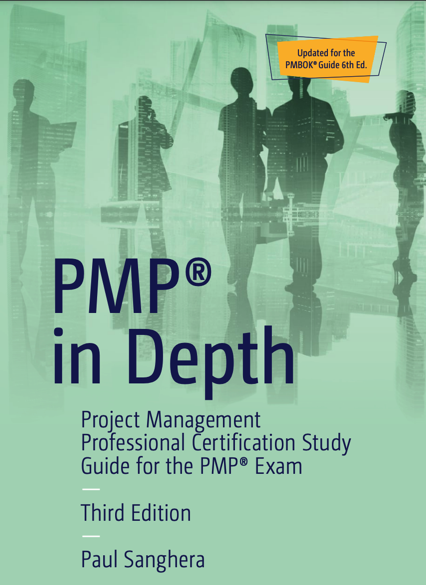Project Managment 101_PMP Ceritification Training
Succeed in obtaining your PMP certification
- Experienced instructors with industry expertise
- Access to official guides and materials
- Covers all exam topics thoroughly
- Flexible study at your own pace
- Support for exam service
- Anytime access to study resources
What you'll learn
Training Course Outline
Project Managment 101_PMp ceritification training
1.Introduction
2.What is Project Management?
3.Key Focus Areas in Project Management.
4.Scope of Project Management
5.Project vs Program
Training Options
Self Paced Learning
- Lifelong access to high-quality content
- Curated by industry experts
- Customized learning progress
- 24/7 learner assistance and support
- Follow the latest technology trends
Exam Dump
- 100% Real Exam Practice Tests
- 100% Verified Exam Questions & Answers
- 100% Guarantee Passing Rate
- Average 7 Days to Practice & Pass
Description
This Project Management course sounds like an excellent starting point for anyone interested in understanding the fundamentals of PMP (Project Management Professional) principles. Covering topics such as "What is Project Management?" provides a foundational understanding of the discipline, while delving into the "Scope of Project Management" offers insights into the breadth of responsibilities involved.
Pre-requisites
The course has no specific prerequisites.

PMP® in Depth Project Management Professional Certification Study Guide
This book has a laser-sharp focus on the exam objectives, expert project managers and project team members who want to pass the PMP exam can use this book to ensure that they do not miss any objectives.
Project Managment FAQs
What are the 5 basics of project management?
The Project Management Institute (PMI) outlines the project lifecycle through five fundamental phases:
- Project Initiation: Establishing the project’s purpose, objectives, and feasibility.
- Project Planning: Defining the roadmap, including scope, timelines, resources, and risk management.
- Project Execution: Implementing the plan by coordinating teams and resources to deliver the project’s outputs.
- Project Monitoring and Control: Tracking progress, managing changes, and ensuring alignment with goals.
- Project Closure: Finalizing all activities, delivering the project, and evaluating lessons learned.
These phases provide a structured approach to managing projects effectively, ensuring successful outcomes, especially in cloud computing environments where adaptability is key.
What are the 10 knowledge areas of project management?
PMI identifies ten essential knowledge areas that form the foundation of effective project management:
- Project Integration Management: Coordinating all aspects of the project to ensure seamless execution.
- Project Scope Management: Defining and controlling what is included in the project.
- Project Time Management: Scheduling and ensuring timely completion of tasks.
- Project Cost Management: Budgeting and controlling financial resources.
- Project Quality Management: Ensuring the project meets the required standards and stakeholder expectations.
- Project Resource Management: Efficiently allocating and managing human and material resources.
- Project Communications Management: Facilitating effective information flow among stakeholders.
- Project Risk Management: Identifying, analyzing, and mitigating potential risks.
- Project Procurement Management: Managing external contracts and vendor relationships.
- Project Stakeholder Management: Engaging and aligning stakeholders throughout the project lifecycle.
Mastery of these areas is critical for managing complex projects, particularly in dynamic fields like cloud computing where resource scalability and stakeholder collaboration are paramount.
What is project scope and why is it important?
Project scope refers to the process of defining and documenting a project’s specific goals, deliverables, tasks, costs, and deadlines. This is typically captured in a scope statement or terms of reference, which serves as a blueprint for the project. In cloud computing projects, where resources and services can scale rapidly, a well-defined scope is essential. It ensures that all stakeholders share a clear understanding of what will be delivered, prevents scope creep, and provides a benchmark for measuring success. Without a precise scope, cloud-based projects risk becoming unwieldy due to the ease of adding features or expanding resource use.
What is the Difference Between Project and Program?
A project is a temporary endeavor with a defined start and end, aimed at producing specific outputs or results, such as deploying a new cloud application. In contrast, a program is a collection of related projects managed together to achieve broader strategic outcomes or benefits, such as a company-wide cloud migration initiative. Programs typically have longer durations, beginning with the start of the first project and concluding with the completion of the last. While projects focus on delivering tangible outputs, programs emphasize realizing overarching benefits, making them vital for coordinating large-scale cloud computing efforts across multiple teams and technologies.